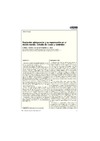Please use this identifier to cite or link to this item:
https://accedacris.ulpgc.es/jspui/handle/10553/74334
| DC Field | Value | Language |
|---|---|---|
| dc.contributor.author | Dorta, E. | en_US |
| dc.contributor.author | Molina, J. | en_US |
| dc.contributor.author | García-Fernández, J. A. | en_US |
| dc.contributor.author | Serra Majem, Lluis | en_US |
| dc.date.accessioned | 2020-09-10T08:54:45Z | - |
| dc.date.available | 2020-09-10T08:54:45Z | - |
| dc.date.issued | 2004 | en_US |
| dc.identifier.issn | 0210-573X | en_US |
| dc.identifier.other | Scopus | - |
| dc.identifier.uri | https://accedacris.ulpgc.es/handle/10553/74334 | - |
| dc.description.abstract | Objective: To know the principal characteristics associated to adolescent pregnancy and value it as a possible risk factor for low birthweight. Materials and methods: To study cases and controls for six months. The cases were selected from nuliparous women aged from 14 years to 19 years admitted to obstetrics during labour. The controls, nuliparous women aged 20 years or more, were admitted to the same center during the same period of time and were chosen randomly from the admissions book. These were coded and later processed using the data of the SPSS V 11.0 programme; descriptive analysis of the data was made, OR was calculated as the measurement of association, with an CI of 95% and the Chi squared test as a contrast of the hypothesis, and assuming the value p < 0.05 to be the statistically significant difference between them. A multivariant analysis was also carried out using a multiple logistic regression model. Results: 242 cases and 484 controls. The risk factors associated with low birth weight identified in the analysis were: the age of the mother < 19 years OR 2.12; CI (1.30-3.44) and antenatal control < 5 visits, OR 5.15 (2.81-9.41). Generally speaking the adolescent mothers were out of the education system and mostly worked as domestic assistants, they also had a higher incidence of low birth weight and prematurity. Conclusions: There is an association between the age of the mother and low weight neonates, which increases amongst those who do not attend the antenatal clinics regularly. | en_US |
| dc.description.abstract | Objetivo: Conocer las principales característicasdel embarazo en la adolescencia y valorarlo como posible factor de riesgo para el bajo peso al nacer. Materiales y métodos: Estudio de casos y controlesde 6 meses de duración. Los casos se seleccionaron apartir de nulíparas,de edades comprendidas entre los14 y los 19 años,que iban ingresando en el servicio deobstetricia por trabajo de parto. Los controles,nulíparas de 20 años o más,que ingresaron en el mismo centro y en el mismo período,se escogieron de forma aleatoria del libro de admisiones. Se procedió a la codificación y al posterior procesamiento de los datoscon el programa SPSS v. 11.0. Se llevaron a cabo unanálisis descriptivo de los datos,y un cálculo de laodds ratio como medida de asociación,con un intervalo de confianza del 95% y un test de la x2 como contraste de hipótesis,asumiendo como diferencias estadísticamente significativas las que tenían un valor de p < 0,05. Asimismo,se realizó análisis multivariantemediante un modelo de regresión logística múltiple. Resultados: Doscientos cuarenta y dos casos y 484controles. Los factores de riesgo asociados al bajopeso al nacer identificados en el análisis fueron:edadde la madre < 19 años (odds ratio= 2,12; intervalo deconfianza del 95%,1,30-3,44) y control prenatal < 5 consultas (odds ratio= 5,15 intervalo de confianzadel 95%,2,81-9,41). De forma general,las madresadolescentes están fuera del sistema educativo,en sumayoría dedicadas a las labores del hogar,y en ellasexiste una mayor prevalencia de bajo peso y de prematuridad. Conclusiones: Existe asociación entre la edad de lamadre y el bajo peso del neonato,que se incrementaentre quienes asisten de forma irregular al controlprenatal. | en_US |
| dc.language | spa | en_US |
| dc.relation.ispartof | Clinica e Investigacion en Ginecologia y Obstetricia | en_US |
| dc.source | Clínica e Investigación en Ginecología y Obstetricia [ISSN 0210-573X], v. 31 (4), p. 118-123, (Enero 2004) | en_US |
| dc.subject | 320108 Ginecología | en_US |
| dc.title | Gestación adolescente y su repercusión en el recién nacido. Estudio de casos y controles | en_US |
| dc.title.alternative | Adolescent pregnancy and its repercussion on the neonate. A case control study | en_US |
| dc.type | info:eu-repo/semantics/Article | en_US |
| dc.type | Article | en_US |
| dc.identifier.doi | 10.1016/S0210-573X(04)77316-5 | en_US |
| dc.identifier.scopus | 2942590496 | - |
| dc.contributor.authorscopusid | 6602465549 | - |
| dc.contributor.authorscopusid | 57211911382 | - |
| dc.contributor.authorscopusid | 7103378495 | - |
| dc.contributor.authorscopusid | 57196914654 | - |
| dc.description.lastpage | 123 | en_US |
| dc.identifier.issue | 4 | - |
| dc.description.firstpage | 118 | en_US |
| dc.relation.volume | 31 | en_US |
| dc.investigacion | Ciencias de la Salud | en_US |
| dc.type2 | Artículo | en_US |
| dc.utils.revision | Sí | en_US |
| dc.date.coverdate | Enero 2004 | en_US |
| dc.identifier.ulpgc | Sí | es |
| dc.description.esci | ESCI | |
| item.grantfulltext | open | - |
| item.fulltext | Con texto completo | - |
| crisitem.author.dept | Departamento de Ciencias Médicas y Quirúrgicas | - |
| crisitem.author.dept | GIR IUIBS: Nutrición | - |
| crisitem.author.dept | IU de Investigaciones Biomédicas y Sanitarias | - |
| crisitem.author.dept | Departamento de Ciencias Clínicas | - |
| crisitem.author.orcid | 0000-0002-9658-9061 | - |
| crisitem.author.parentorg | IU de Investigaciones Biomédicas y Sanitarias | - |
| crisitem.author.fullName | Armas Molina, José Vicente | - |
| crisitem.author.fullName | Serra Majem, Luis | - |
| Appears in Collections: | Artículos | |
SCOPUSTM
Citations
2
checked on Jun 8, 2025
Page view(s)
46
checked on Jan 10, 2026
Download(s)
191
checked on Jan 10, 2026
Google ScholarTM
Check
Altmetric
Share
Export metadata
Items in accedaCRIS are protected by copyright, with all rights reserved, unless otherwise indicated.
